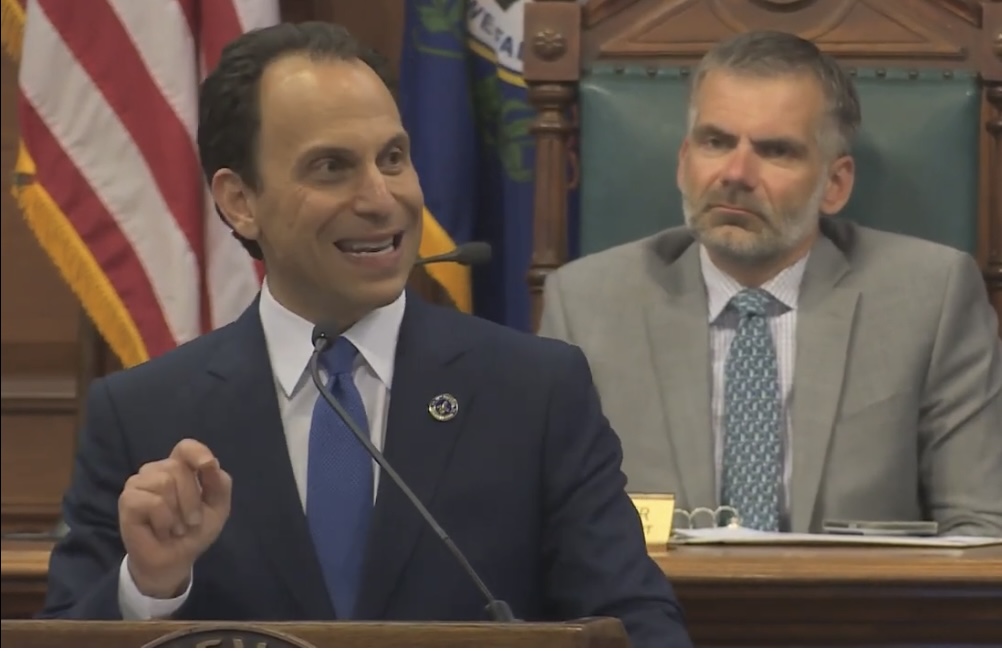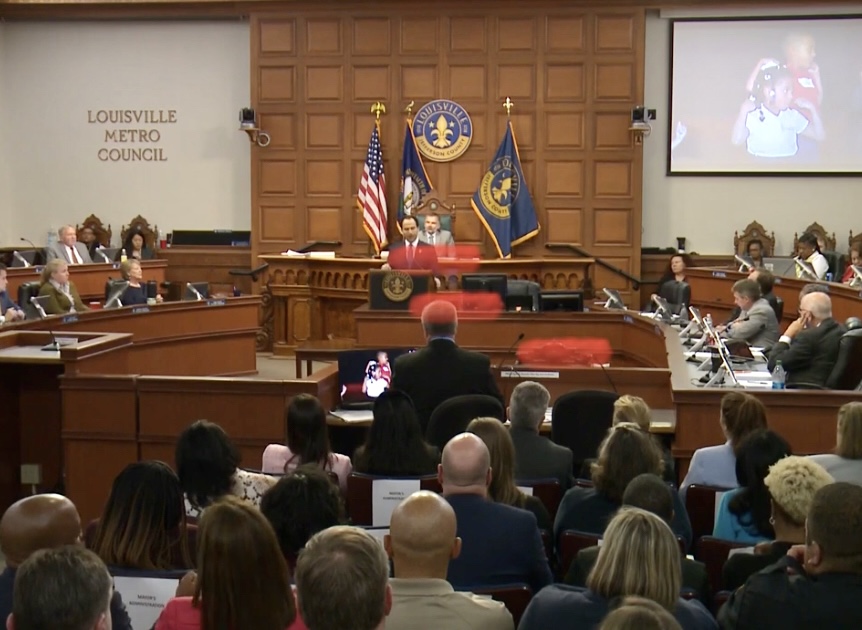

Louisville Mayor Craig Greenberg is making good on his campaign promise to improve Louisville Metro open records compliance in his first budget. He has allocated $475,100 to create a new Department of Records Compliance, including six new positions to handle open records requests.
"Greenberg has expressed the hope that this proposal will make Metro government ‘more transparent and more prompt in responding to requests for open records,’” reports WDRB’s Marcus Green.
https://www.wdrb.com/news/louisville-mayor-craig-greenberg-unveils-1-1-…
It’s a start—and an important one. But there is something more fundamental, and less painful to Metro Government’s pocketbook, that would be equally effective in promoting transparency and open records compliance across Louisville Metro Government.
Training.
Not just any training.
Not just the nuts and bolts of Kentucky’s open records law but training aimed at instilling in Metro Government officials and employees an appreciation for the value of the law.
And not just any trainer.
I’ve observed an open records trainer who described Kentucky’s open records laws as “sins of the fathers” laws enacted in response to an era of secrecy and corruption that ostensibly no longer exists.
I’ve observed an open records trainer who suggested that Kentucky’s open records laws are “all about the money.” I’m still scratching my head about that one. Perhaps the trainer was referring to avoidance of statutory penalties for noncompliance.
I’ve even observed an open records trainer who focused exclusively on ways of evading the requirements of the law — rather than complying with the law.
The common theme in these less than instructive and/or uninspiring training sessions is that Kentucky’s open records laws are a nuisance — something less than a statutory duty that yields to the press of other agency business -- a low priority.
"Discharge of open records duties is required by law," I wrote as an assistant attorney general in 2001, "and is as much a legal obligation of a public agency as the provision of other services to the public."
https://www.ag.ky.gov/Resources/orom/2001/01ORD038.doc
A far more eloquent Judge Irv Maze wrote for the Court of Appeals in 2016:
"The Open Records Act is neither an ideal nor a suggestion. It is the law. Public entities must permit inspection of public records as required or risk meaningful punishment for noncompliance. Rigid adherence to this stark principle is the lifeblood of a law which rightly favors disclosure, fosters transparency, and secures the public trust."
https://caselaw.findlaw.com/court/ky-court-of-appeals/1726554.html
Judge Maze expressly rejected the noncompliant public agency's "obvious and misguided belief that the Open Records Act is merely an ideal – a suggestion to be taken when it is convenient and flagrantly disregarded when it is not.”
To what public agency did Judge Maze address this statement?
The Cabinet for Health and Family Services.
What public records was the Cabinet withholding?
Records concerning child fatalities or near fatalities caused by neglect or abuse of children under the supervision, control or monitoring of the Cabinet.
The stakes were as high as they would ever be in an open records dispute. It was impossible to casually dismiss the importance of the open records law in exposing the Cabinet's inability and/or failure to protect Kentucky's most vulnerable -- and the Cabinet's attempted cover-up.
Coupled with the legislative policy recognizing that "free and open examination of public records is in the public interest," and the judicial recognition that "the statute exhibits a general bias favoring disclosure," this is where my presentations begin: "Rigid adherence to this stark principle is the lifeblood of a law which rightly favors disclosure, fosters transparency, and secures the public trust."
https://apps.legislature.ky.gov/law/statutes/statute.aspx?id=23058
https://law.justia.com/cases/kentucky/supreme-court/1992/90-sc-498-dg-1…
Open records laws in Kentucky are the great levelers. They empower the public to hold its servants accountable. They enable the public to "remain informed so they may retain control over the instruments that they have created."
https://casetext.com/case/lexington-herald-leader-v-univ-of-ky
They “provide impetus for an agency steadfastly to pursue the public good.”
Metro Government must receive training on the statutory duties of public agencies, officials, and employees and the statutory rights of the public -- along with judicial and administrative interpretations of these duties.
But the training must proceed from the Kentucky Supreme Court's early recognition:
“The right of the public to be informed transcends any loss of efficiency” and, incidentally, any reasonable cost associated therewith.
https://casetext.com/case/lexington-herald-leader-v-univ-of-ky
The Kentucky Open Government Coalition stands ready to assist. And we know several knowledgeable, experienced, committed open records practitioners who would also likely assist.


